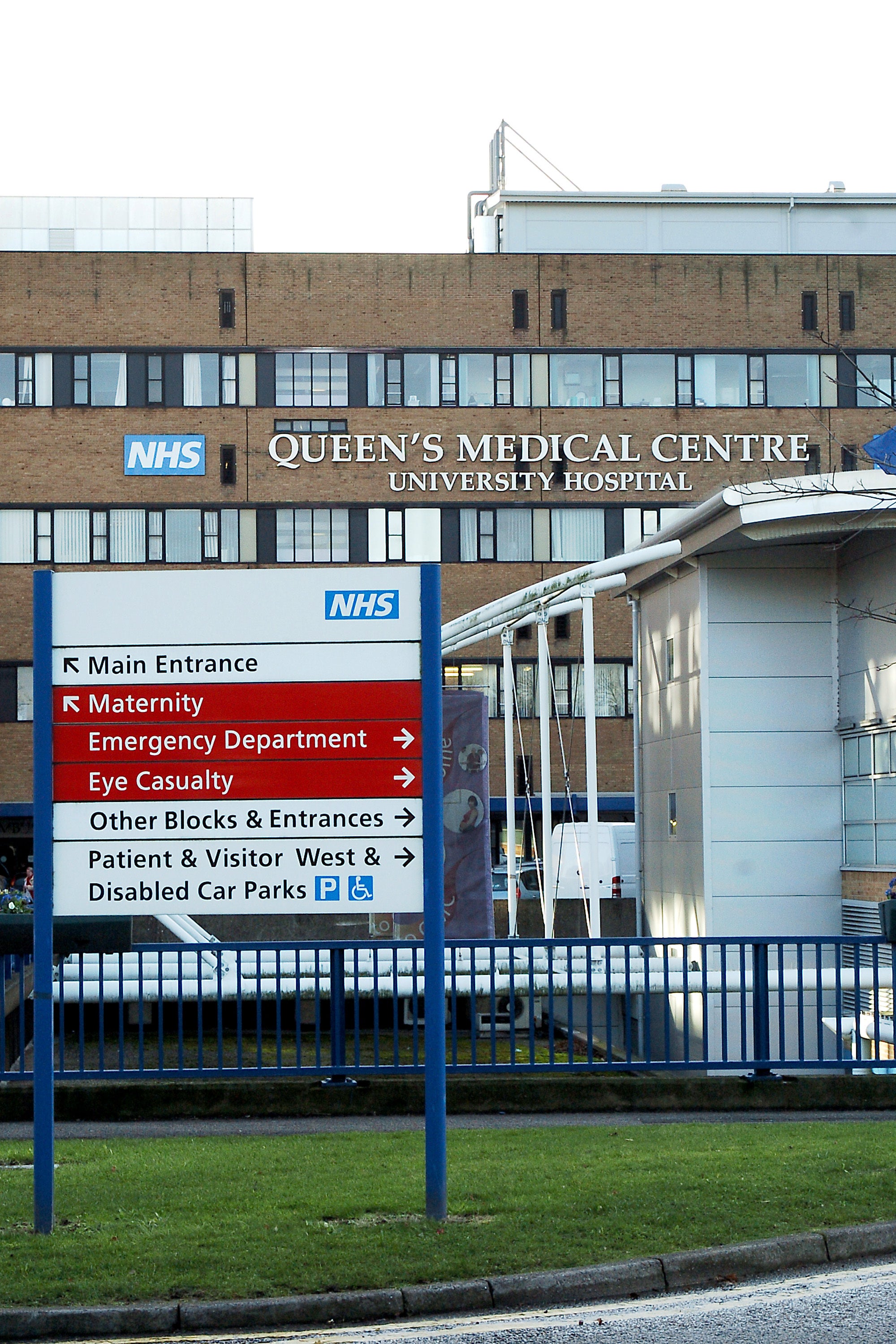Nottingham hospital trust to be prosecuted over death of baby
Wynter Sophia Andrews died in September 2019 after she was born via Caesarean section at Queen’s Medical Centre in Nottingham.

Your support helps us to tell the story
From reproductive rights to climate change to Big Tech, The Independent is on the ground when the story is developing. Whether it's investigating the financials of Elon Musk's pro-Trump PAC or producing our latest documentary, 'The A Word', which shines a light on the American women fighting for reproductive rights, we know how important it is to parse out the facts from the messaging.
At such a critical moment in US history, we need reporters on the ground. Your donation allows us to keep sending journalists to speak to both sides of the story.
The Independent is trusted by Americans across the entire political spectrum. And unlike many other quality news outlets, we choose not to lock Americans out of our reporting and analysis with paywalls. We believe quality journalism should be available to everyone, paid for by those who can afford it.
Your support makes all the difference.A hospital trust is being prosecuted over the death of a baby which could have been prevented if she had been delivered sooner.
Wynter Sophia Andrews died on September 15 2019 after she was born via Caesarean section at Queen’s Medical Centre in Nottingham, East Midlands.
An inquest the following year found that she died from hypoxic ischaemic encephalopathy – a loss of oxygen flow to the brain – and this could have been avoided if staff had delivered her earlier.
We have now concluded our investigation into the care provided to a mother and her baby by Nottingham University Hospital NHS Trust. As a result of that investigation, we intend to prosecute the trust for its failure to provide safe care and treatment ...
Assistant coroner Laurinda Bower found the baby’s death “was contributed to by neglect” at the hands of Nottingham University Hospitals NHS Trust.
On Thursday, the Care Quality Commission (CQC), which regulates health services in England, said it would be prosecuting the trust.
Operations director at the CQC, Fiona Allinson, said: “We have now concluded our investigation into the care provided to a mother and her baby by Nottingham University Hospitals NHS Trust (NUH).
“As a result of that investigation, we intend to prosecute the trust for its failure to provide safe care and treatment under Regulation 12(1) of the Health and Social Care Act 2008 (Regulated Activities) Regulations 2014 (RAR 2014) and will report further as soon as we are able to do so.”
The baby’s mother, Sarah Andrews, was admitted to the hospital on September 14 2019.
Staff told me that they have repeatedly raised their concerns about patient safety, but their concerns have been met with silence
In her preventing future deaths report, Ms Bower said that, on this day, the hospital had “operated in a fundamentally unsafe manner” due to being understaffed.
She said that Ms Andrews “did not receive the care and attention that she clinically required” and her baby “ought to have been delivered by Caesarean section well before 14.06 hours when she was in fact delivered”.
Ms Bower said: “Staff told me this was not the first time, nor the last time, that they have been asked to care for multiple families simultaneously, meaning that those families cannot receive the time, focus and dedication they require.
“Staff further told me that they have repeatedly raised their concerns about patient safety, but their concerns have been met with silence.”
Ms Bower also highlighted an “unsafe culture prevailing within midwifery services” at the hospital – which are subject to an independent review by senior midwife Donna Ockenden.
NUH said it has made “a number of improvements” since Wynter’s death, including improving training around foetal monitoring, recruiting more staff, and introducing a 24/7 maternity advice line for mothers with concerns.
In response to the CQC’s announcement, the trust’s chief executive, Rupert Egginton, apologised to Wynter’s family and said improvements were being made.
He said: “We are deeply sorry that we failed this family, and apologise unreservedly for the mistakes we made at the time.
“We have taken action to address the failings that led to this tragic loss and introduced a range of improvements designed to offer the best maternity care to families using our services.
“But we know there is a lot more work to do, and are committed to supporting the work of Donna Ockenden’s review team, which alongside the work of our own improvement team, will ensure we do everything necessary to learn and improve.”